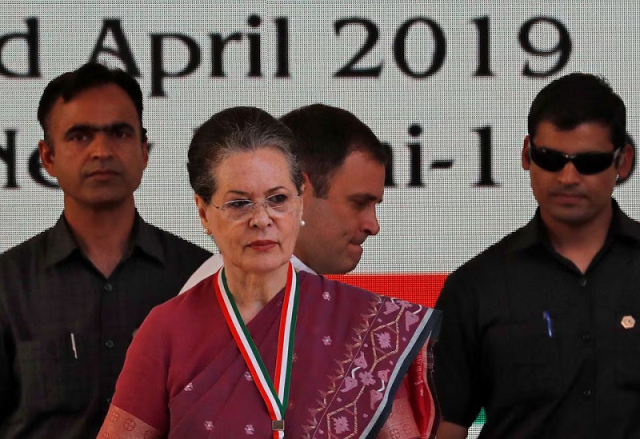India's Sonia Gandhi supports bill to reserve third of parliament seats for women
"The Congress demands that the bill be implemented as soon as possible," says opposition Congress leader Sonia Gandhi

India's opposition Congress leader Sonia Gandhi on Wednesday offered unequivocal support to a bill reserving a third of seats in the lower house of the parliament and state assemblies for women, a day after it was introduced into parliament.
"The Congress demands that the bill be implemented as soon as possible," said Gandhi, the first lawmaker to start the debate on the bill tabled by Prime Minister Narendra Modi's government.
"For how many years women will have to wait for a larger role in the parliament?," said Gandhi, 77.
The bill will require the approval of both houses of parliament and a majority of state legislatures to be passed.
While all political parties have welcomed the bill and are expected to vote in favour, its implementation depends on a complex drill of population census and boundaries of all political constituencies redrawn.
India's once in a decade census was due to be completed in 2021 but was delayed because of the pandemic. Technical and logistical hurdles have set the survey back further.
Read also: Indian lawmakers bid farewell to British-era parliament building
Gandhi and other female lawmakers from regional parties also demanded a quota for women from backward castes within the overall 33% quota for women to ensure equal representation of women from all walks of life.
Increasing the number of women in India's corridors of power is expected to serve as a game-changer for Modi's ruling party as it aims to nominate women for a third of seats in the 2024 general elections.
Although Indian women are increasingly making their presence felt in society and professionally, they have largely been stuck on the sidelines of the political process, accounting for about one in 10 national and regional lawmakers.
"Women in India have made enormous sacrifices for the growth of India," said Gandhi.
Italian-born Gandhi, the widow of former prime minister Rajiv Gandhi, has been the longest-serving president of the Congress party and has been credited with reviving the Congress when it won national elections in 2004.
Gandhi who could have become India's first foreign-born prime minister, but had surprised everyone by turning down the top post and instead nominated economist Manmohan Singh to be prime minister.



















COMMENTS
Comments are moderated and generally will be posted if they are on-topic and not abusive.
For more information, please see our Comments FAQ